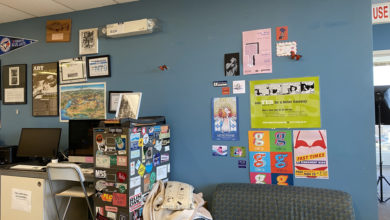Lister meal plan survey is more of a charade than a consultation
 Michał Grosicki
Michał GrosickiAbout a year ago, the university’s Board of Governors voted down a new all-you-can-eat meal plan for Lister Hall’s 2017-18 year. The plan would have increased the amount students paid for food, and restricted where students could eat (changing from mostly anywhere on campus to only in the Lister and Peter Lougheed Hall dining halls). The overall feeling at the time: students were being asked to pay more for less flexibility.
Last year’s meal plan proposal moved at a blinding speed, being introduced to Students’ Council on December 9th, approved at committee level on the 12th and brought to the Board of Governors on December 16th. One of the main reasons last year’s proposal was defeated was, as then-SU President Fahim Rahman had said, there was simply no time, and no way to adequately consult students for their opinions.
The university’s residence services seem to understand why the decision had been made, and are step ahead of last year. A Lister student working group was formed on September 1st, and on October 25th, a consultation survey was released to Lister students to gather their feedback ahead of a true proposal for next year’s Lister meal plan.
Unfortunately, the survey was not interested in consulting students on issues that could actually make a difference. Instead, it was superficial; carefully constructed so that students could never dissent from the options given in the survey. The only open-ended question allowing students to respond negatively was in the “Additional comments” section. Other questions asked things like “If there were a boxed lunch offered containing a sandwich, a juice box/drink and a piece of fruit, would you be likely to order it?” or “With $300 worth of flex dollars to spend, where would you be most likely to spend those flex dollars?”
Most of the important decisions were made before the survey even got released. It is understood that students should just fall in line and accept that their feedback could influence shallow changes at best, and that they should trust that the university will know what is best for them. Questions still remain for Lister residents. Students still don’t know how a dining hall that seats 600 can feed all of Lister’s 2,000-plus residents food can’t be removed from the cafeteria. Furthermore, the seven-day meal plan option, combined with Lister’s rent and full-time tuition, would stretch past the maximum amount of student loans a student can receive. According to the majority of students I have spoken with, and from my own personal experience, $300 flex dollars for a year is a ridiculously low amount, especially when those $300 flex dollars also account for how much you can spend in the downstairs Marina.
If this is the plan that is going to the Board of Governors anytime soon, it will be wholly disappointing. Student consultation has been done as though the meal plan was nearly complete, and excluded the core issues at hand. Pricing, food quality, and the accessibility of the meal plan are the most important aspects here, and we still see how the student voice has been ignored. Instead, we have a consultation effort that can best be seen as pandering to the students, asking questions on topics that won’t majorly influence any aspect of Dining Services in Lister.
Remember that no meal plan discussions have happened at the Board of Governors so far this year. Despite what it may have seemed like in the consultation survey, there is no guarantee that the Lister all-you-can-eat meal plan will be approved for next year. The meal plan must be brought forward again and will be discussed and when it is, it is important to make sure student voices are heard.
This meal plan is just a symptom of a much larger problem. The university has kept students at arms’ length; it needs to understand that students deserve to have their voices heard when decisions are made that will affect their experience. As a whole, students need to demand more accountability from their university governance, because it is unacceptable that the university continues to prepare the absolute bare minimum and present it as its best effort.




